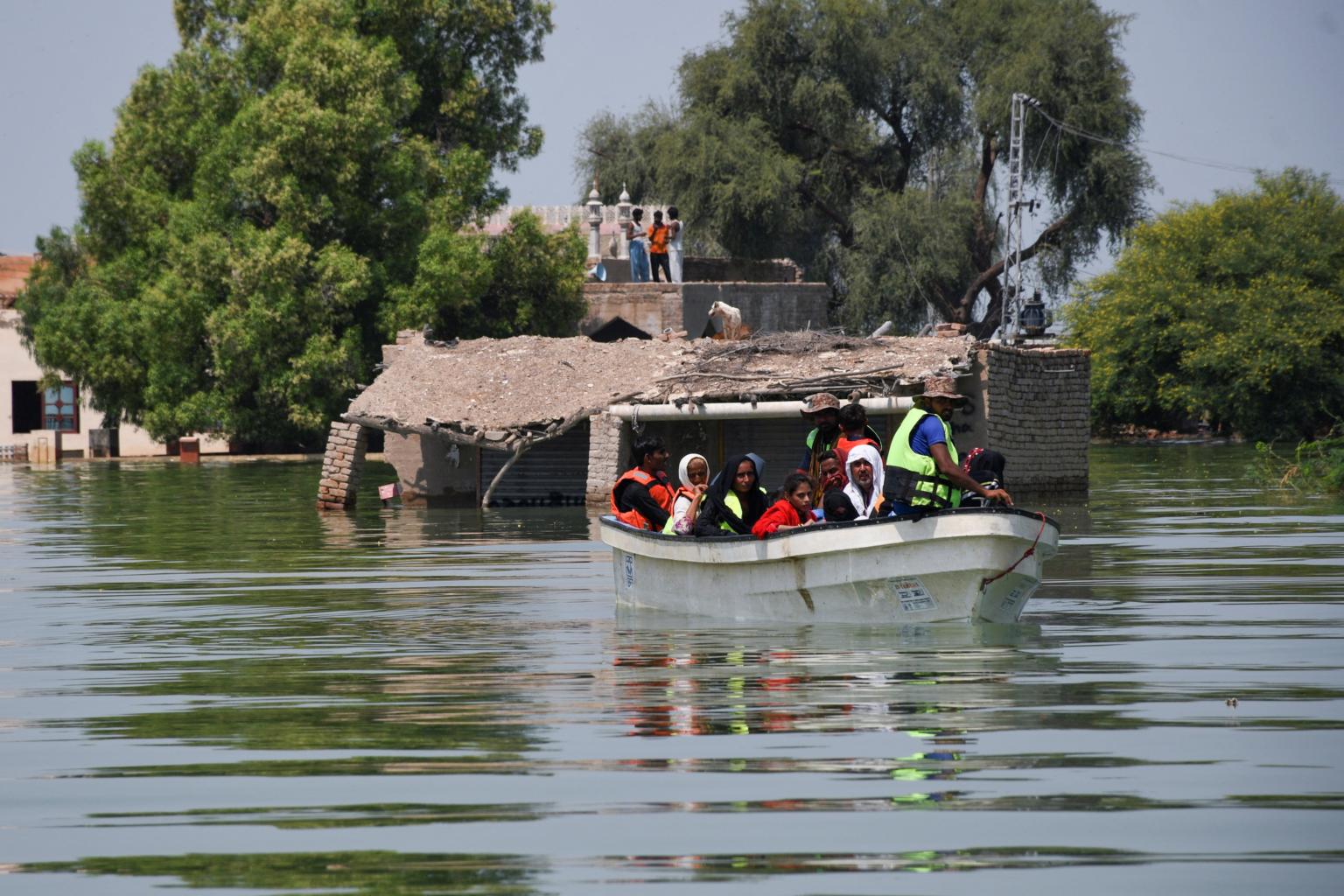Floods devastating a third of Pakistan 'just the beginning' of climate crisis: Panellist
Sign up now: Get ST's newsletters delivered to your inbox

The climate crisis is expected to displace more than 1.2 billion people by 2050.
PHOTO: REUTERS
SINGAPORE - The recent floods devastating about a third of Pakistan is "just the beginning" of the climate crisis, which is expected to displace more than 1.2 billion people by 2050, said climate change and sustainability services consultant Pok Wei Heng.
The record-breaking downpours hitting Pakistan have been linked to climate change, despite the South Asian nation contributing less than 1 per cent to global emissions that are fuelling the world's warming.
Mr Pok was speaking at a panel on well-being in the face of climate change at the Nobel Prize Dialogue 2022: The Future We Want Together on Tuesday, which brought together laureates, students and other experts.
"It's up to the developed countries... The emissions intensity of the developed world has skyrocketed while in countries like Pakistan, it has remained the same," he said.
Organised by the Nobel Prize Outreach and the National University of Singapore Yong Loo Lin School of Medicine (NUS Medicine), in partnership with the Asian Medical Students' Association Singapore, the dialogue was held at the Raffles City Convention Centre.
Speakers at the panel include Unesco senior policy analyst Anna d'Addio, French physicist Serge Haroche and director of the NUS Centre for Nature-based Climate Solutions Koh Lian Pin.
Dr Haroche, who was awarded the Nobel Prize for Physics in 2012, said rich countries have shown solidarity in tackling climate change, citing the Paris Agreement where nations agreed to reduce emissions in 2015.
"The only problem is that even if the contract has been signed, some countries don't follow what they say they would do, and this is a really big geopolitical problem," he said.
While low-cost changes such as avoiding straws and not using plastic bags have become low-hanging fruit, the challenge for individuals, corporations and governments is to make changes that have high impact but come at a high cost, said Professor Koh. "For example, moving from internal combustion engines to electric vehicles, and in fact moving even beyond that to public transport," he added.
On an individual level, consumers could also change high impact consumption habits at a low cost.
For instance, those with meat-based diets could transition to proteins that are less carbon-intensive, said Prof Koh.
In 2021, a United Nations report found that 14.5 per cent of global greenhouse gas emissions arise from livestock farming.
Governments could help by sending clear messages through legislating policies including labelling and taxing food that can be unhealthy for the environment, suggested Prof d'Addio, who has an economics background.


